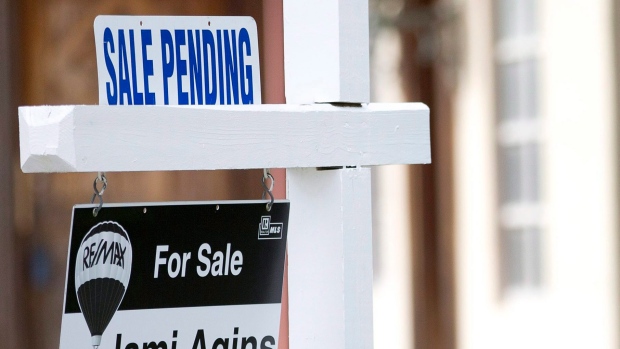Canada's banking regulator said on Tuesday it will require some of the country's banks to test how they would withstand a 50 per cent drop in property prices in Vancouver and a 40 per cent decline in Toronto.
The move, which builds on an existing requirement that banks test their resilience to a 30 per cent decline in home prices across all regions, is the latest in a series of measures by Canadian authorities to counter a risk posed by soaring house prices in the two Canadian cities.
The Office of the Superintentent of Financial Institutions (OSFI) said in a statement to BNN that Canada’s Big Six banks are not subject to the housing downturn stress tests, but may face a separate round of tests.
OSFI said earlier this month it was tightening oversight of mortgage lending, citing concerns about record household debt and a sharp jump in prices.
BMO Capital Markets Senior Economist Benjamin Reitzes told BNN that OSFI is using “extreme” price declines in its stress testing because it wants to make sure banks can withstand a worst-case scenario that could be triggered by a global financial meltdown.
“Getting prices to fall to that extent would either take a massive jump in interest rates, which I don’t think anybody sees, or a very significant recession – which, again is not in our forecast or anybody else’s,” Reitzes said in an interview. “But it’s important to stress test against these kinds of black swan events that no one sees coming.”
Property markets have surged in Vancouver and Toronto since the 2007-2009 financial crisis, fueled in part by foreign investors, mostly from mainland China.
Canada's banking regulator does not publicly announce the results of bank stress tests in the same way as its counterparts in the United States and Europe, but it considers the tests important in ensuring the country's banks have strong enough capital buffers to withstand market shocks.
OSFI said that, previously, only the impact on banks' core capital ratios was assessed in the test but, this year, the impact on banks' leverage ratios, which do not take into account risk weightings used by banks, will also be tested.
Canadian Finance Minister Bill Morneau announced in June that the Liberal government would set up a working group of federal, provincial and municipal officials to recommend policy changes aimed at preventing a housing bubble.
British Columbia introduced a new 15 per cent property transfer tax on foreign real estate buyers in Vancouver on Monday.
With files from BNN








